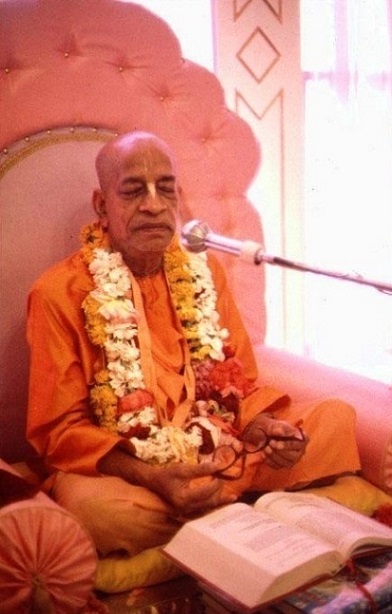"As advised in Chapter Thirteen of the Bhagavad-gītā (13.8-12), one should culture knowledge in the following way:
1. One should become a perfect gentleman and learn to give proper respect to others.
2. One should not pose himself as a religionist simply for name and fame.
3. One should not become a source of anxiety to others by the actions of his body, by the thoughts of his mind, or by his words.
4. One should learn forbearance even in the face of provocation from others.
5. One should learn to avoid duplicity in his dealings with others.
6. One should search out a bona fide spiritual master who can lead him gradually to the stage of spiritual realization, and one must submit himself to such a spiritual master, render him service and ask relevant questions.
7. In order to approach the platform of self-realization, one must follow the regulative principles enjoined in the revealed scriptures.
8. One must be fixed in the tenets of the revealed scriptures.
9. One should completely refrain from practices which are detrimental to the interest of self-realization.
10. One should not accept more than he requires for the maintenance of the body.
11. One should not falsely identify himself with the gross material body, nor should one consider those who are related to his body to be his own.
12. One should always remember that as long as he has a material body he must face the miseries of repeated birth, old age, disease and death. There is no use in making plans to get rid of these miseries of the material body. The best course is to find out the means by which one may regain his spiritual identity.
13. One should not be attached to more than the necessities of life required for spiritual advancement.
14. One should not be more attached to wife, children and home than the revealed scriptures ordain.
15. One should not be happy or distressed over desirables and undesirables, knowing that such feelings are just created by the mind.
16. One should become an unalloyed devotee of the Personality of Godhead, Śrī Kṛṣṇa, and serve Him with rapt attention.
17. One should develop a liking for residence in a secluded place with a calm and quiet atmosphere favorable for spiritual culture, and one should avoid congested places where nondevotees congregate.
18. One should become a scientist or philosopher and conduct research into spiritual knowledge, recognizing that spiritual knowledge is permanent whereas material knowledge ends with the death of the body.
These eighteen items combine to form a gradual process by which real knowledge can be developed. Except for these, all other methods are considered to be in the category of nescience. Śrīla Bhaktivinoda Ṭhākura, a great ācārya, maintained that all forms of material knowledge are merely external features of the illusory energy and that by culturing them one becomes no better than an ass. This same principle is found here in Śrī Īśopaniṣad. By advancement of material knowledge, modern man is simply being converted into an ass. Some materialistic politicians in spiritual guise decry the present system of civilization as satanic, but unfortunately they do not care about the culture of real knowledge as it is described in the Bhagavad-gītā. Thus they cannot change the satanic situation."
(Śrī Īśopaniṣad 10, Purport)
.

